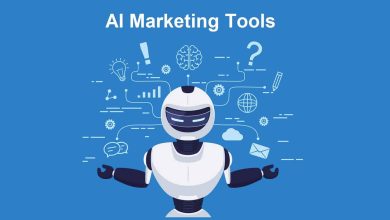
Brand marketers in the financial services industry have long recognised the importance of ensuring an efficient and enjoyable customer journey, as engagement with brands is influenced by how positive their entire experience is. However, customers have become more demanding about personalisation, omnichannel interaction options, trust and transparency, customer service, and most importantly, protection of their data and privacy.
To meet these rising expectations, Artificial Intelligence (AI) is poised to play a critical role in marketing and significantly impact the overall customer decision journey. According to a PWC report, 78% of Chief Marketing Officers (CMOs) expect to use generative AI (GenAI) to transform their business model. Marketers who are already using AI can see the benefits and potential of AI technology.
Marketing strategies pivoting towards AI
Today, customers’ perception of brands is shaped not just on the quality of products and services, but also their overall experience. Therefore, marketing strategies must be built around a holistic understanding of customers and their bespoke needs to provide curated solutions or services. For example, AI-based credit report writing tools can help financial institutions deliver personalised and accurate reports, enhancing customer trust and satisfaction. Covenant monitoring can also be significantly enhanced through AI, ensuring effective compliance and risk management in real-time.
Additionally, agentic AI systems and bespoke chatbots can personalise the experience of potential customers from the moment they land on a brand’s webpage. These systems guide users to relevant pages based on historical data gleaned from their past interactions with the company. With a great volume of information available online, it is important to ensure customers’ search for content is swift, accurate and fruitful. For example, bankers and asset managers seeking curated information on the latest market trends, macroeconomic developments, or competitive analysis, expect to seamlessly access information to enable faster decision-making.
Getting AI integration right by meeting challenges head-on
At the basic level, AI helps handle repetitive tasks, such as content creation and creative design aspects. It also augments demand generation programs, enhancing client reporting services for financial institutions, and helping marketers better analyse data and execute precision campaigns to enhance marketing return on investment (ROI).
However, marketers need to know how to separate AI’s real value from the hype currently surrounding the technology. They must have a deep understanding of the real implications of AI deployment for their organisation and customers. Currently, marketers are seeking to rapidly learn AI’s nuances and applicability for different functions and workflows within marketing. CMOs are pushing for greater AI budgets and investments, rapidly training their teams, and taking necessary actions to initiate AI-led pilots across marketing sub-functions.
A significant strategic challenge CMOs currently face is the short supply of AI expertise among traditional marketers. One option is to hire AI and data experts, but, alternatively, they can partner with their Chief Technology Officers or Chief Information Officers to tap into skillsets already available in other teams of organisations. This allows the CMO ready access to smart AI systems that can be deployed at scale and monitored to drive the right outcomes.
Ensuring the availability and quality of data is also paramount, but most traditional marketing teams work with disconnected data systems across different functions. Customer relationship management (CRM) data, website traffic, campaign traffic, search engine optimisation (SEO) analytics, social media engagement, digital touch points insights, customer records, and more, generally operate as silos.
Siloed data must be consolidated and correlated to draw real and tangible value from AI tools. This entails complex, time-consuming, and expensive efforts. To overcome this hurdle, CMOs should study data availability and quality, and identify ways to integrate data silos and AI technology in a logical manner.
Additionally, as we head into a future where it will be the norm that AI is incorporated into every function of organisations, the highest data privacy and security standards must be maintained. The strategy of CMOs must reflect a careful, prudent, and cognizant approach.
Outlook for 2030
Over the next five to seven years, I expect that AI will progress and mature into a business-as-usual (BAU) standard across business functions, including marketing. As AI adoption accelerates, financial data science solutions will enable businesses to extract deeper insights from data, refine marketing strategies, and optimize customer engagement.
AI will also help deliver hyper-personalised content and customer experience, predictive analytics, and better decision-making. These enhancements will be possible without relying on vast resources. Content-dependent areas of marketing, such as development, optimisation, etc., will also become scalable. Additionally, based on the AI-led improvements already visible, the future promises more integrated, contextual, and scalable video production.
While every marketing team already uses some form of AI assistants today, AI agents will become a ubiquitous feature for real-time support in the future. An AI co-worker will probably accompany every team member, and listen, understand, and assimilate information about their job function to enable better, efficient and creative ways of working.
All these developments will give marketing teams a solid basis for better-crafted campaigns and on-point messaging that target prospects looking for their brand’s solutions and services. Although hallucination has been a worry, the evolution of AI models trained on real-time data helps alleviate this concern with each advancement.
AI will also be game-changing for performance marketing teams with a strong focus on faster and quality customer acquisition and retention, enhancing marketing ROI. Demand generation activities run on massive data sets that must be mined and analysed for insights into customer behaviour. AI can substantially uplift campaign deployment and performance in such instances. Within the next three to five years, every dollar spent on demand generation activities will potentially gain more dollars in return, in comparison to the current ROI.
Over the coming years, CMOs should look at AI deployment as an enabler for every member of their organisation to work more effectively – a bespoke AI model for each that paves the path to collective success. The age of AI is upon us, and exciting times lie ahead as we witness the evolution of the marketing function.





